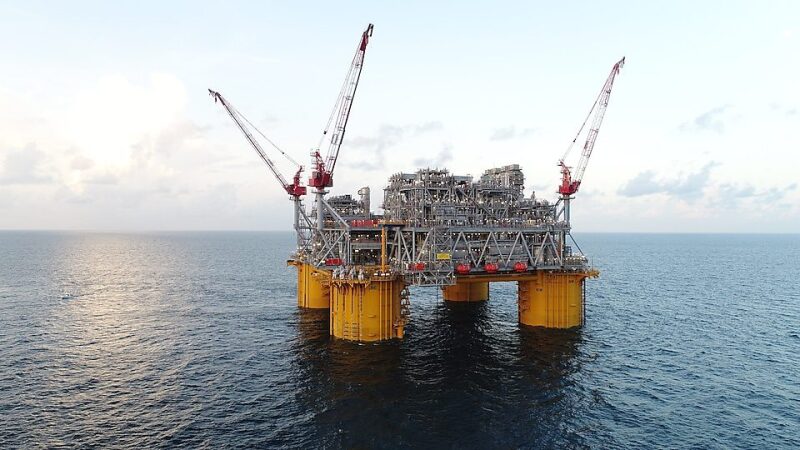Shell said it will be adding up to $4.5 billion more in writedowns this year due to issues related to continued low oil and gas prices and disappointing results from a major deepwater development in the Gulf of Mexico.
On a day when oil prices dropped on a resurgence of worries about another economic hit due to responses to a surge in COVID-19 cases, Shell’s prediction that it was pushing up its write downs by $3.5 to 4.5 billion to near $22 billion was in keeping with the mood swing that follows a month-long-rally.
Shell said its adjusted upstream earnings would be negative for the fourth quarter due to the asset valuations reductions. Its production was reduced by a string of recent hurricanes in the Gulf of Mexico and weak demand meant for products, which also meant refineries were running at low levels.
One item that stood out on the list featuring onerous contracts and tax credit issues, was a reduction in the value of its Appomattox platform, which is operated by Shell in partnership with CNOOC, which holds a 21% stake.
Appomattox is the first commercial development in the Norphlet formation, with startup in early 2019. Its namesake discovery held estimated at 500 million BOE, according to Shell, which said a handful of other nearby Norphlet finds could sustain production, expected to reach 175,000 b/d.
“Appomattox creates a core long-term hub for Shell in the Norphlet through which we can tie back several already discovered fields as well as future discoveries,” Andy Brown, Shell’s upstream director, said last year after achieving first oil.
The statement made it clear that there was something amiss with the reservoir analysis, but not much else. It said the value would be reduced by a “partial impairment of Appomattox asset in the US Gulf of Mexico due to subsurface updates.”
The company said the Jurassic-period Norphlet play is characterized by high pressures and well temperatures, where good quality oil can be found in high quality sandstone reservoirs.”
But not always, according to an online presentation earlier this year from the University of Texas at Austin Bureau of Economic geology. The talk noted exploration results in the deep water Norphlet ranged from a major find like Appomattox, “to economically challenged oil fields.”
Poor seals in some older Norphlet reservoirs allowed higher value lighter oil to escape, leaving only lower quality residual oil behind, according to Ed Godo, a consultant geologist who retired from Shell.


